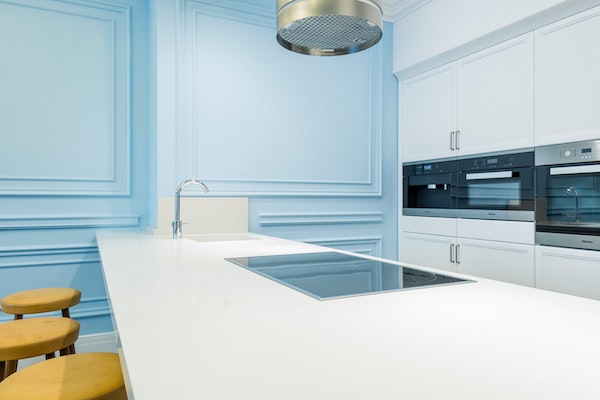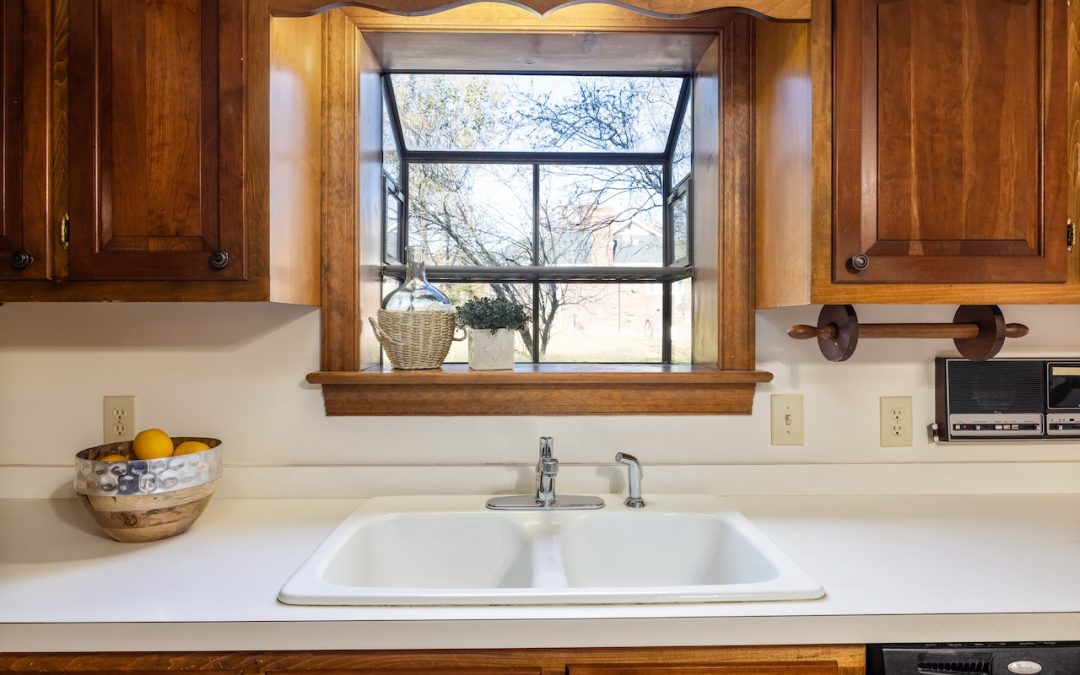If your granite counters are not properly sealed, filth will always be a problem, no matter how much you clean them. If you’ve worked with a quality kitchen designer, you are probably already aware of how crucial it is to get your countertops sealed on a regular basis. You should get your counters resealed at least every two years, but ideally every year, to keep them looking their best.
Some people have misconceptions concerning the function of granite sealers. The majority of them operate in a similar manner. Contrary to popular belief, they are not a surface coating that forms a layer on top of the stone to shield it from stains and physical harm. In reality, sealants are absorbed by the permeable stone. They build a barrier that gives you some extra time to stop a spill from penetrating the granite, but an unattended spill still has the potential to damage the stone.
Why Sealing Granite Countertops Is Important For Several Reasons:
Stain resistance: Granite is a porous natural stone, which means it can absorb liquids and stains if left unprotected. Sealing creates a protective barrier that prevents liquids, oils, and other substances from penetrating the surface and causing stains. By sealing the granite, you can make it more resistant to staining, which is particularly important in kitchen countertops where spills and food stains are common.
Durability: Granite is a durable material, but regular sealing helps maintain its longevity and appearance. When granite is properly sealed, it becomes less susceptible to damage caused by chemicals, heat, and daily wear and tear. The sealant helps to strengthen the surface and protect it from scratches, etching, and other forms of damage, ensuring that your counters remain in good condition for years to come.
Hygiene and sanitation: Granite counter tops in kitchens and bathrooms are exposed to various substances and moisture, which can create an environment for the growth of bacteria, mold, and mildew. Sealing the granite helps to inhibit the growth of these microorganisms by preventing them from penetrating the surface and finding a hospitable environment to thrive. This makes cleaning and maintaining the countertops easier and helps ensure a more hygienic and sanitary surface.
Enhancing natural beauty: Granite is known for its natural beauty, with a wide range of colors and patterns available. Sealing the counter tops can enhance the appearance of the granite by bringing out its colors and shine. It provides a glossy finish that adds depth and richness to the stone, making it even more visually appealing.
How To Tell If You Granite Is Already Sealed.
Pour just enough water to create a puddle with a diameter of about 3 inches on different areas of the granite’s surface to see if it needs to be sealed right away. You must monitor how quickly the liquid absorbs through the surface pores once the puddles have formed. Water will bead on top of the stone if you have a good seal. If, within 30 minutes, a dark mark or ring begins to appear, this indicates that the seal has been broken, and you should immediately apply a fresh layer of granite sealer. Even though the water will ultimately disappear, be sure to completely dry all areas after the test.
Getting a Granite Countertop Sealed
Following these methods will seal a granite countertop in around 20 minutes without being too challenging:
- Your counters should be cleaned with a clean cloth after everything has been removed. Before you start sealing, make sure the surface is completely dry.
- Spray the sealer evenly and liberally over the surface while wearing gloves. Ensure that the surface is completely covered.
- After 15 minutes, remove any extra by wiping. Spray some sealant onto a cloth and wipe at any hazy spotting you find with the cloth. They ought to vanish.
- Within 24 hours, the counters ought to be completely sealed.
It’s important to note that the frequency of sealing will depend on the type of granite and the specific sealant used. Some sealants can last for several years, while others may require reapplication every 6-12 months. It’s best to follow the manufacturer’s instructions or consult with a professional to determine the appropriate sealing schedule for your specific granite countertops.

Looking for help in getting your granite countertop sealed? We can work side by side with you to ensure your finished product is what you want at a price you need. For any help you may need with your granite, contact us through our website here: https://pioneergraniteandquartz.com/

